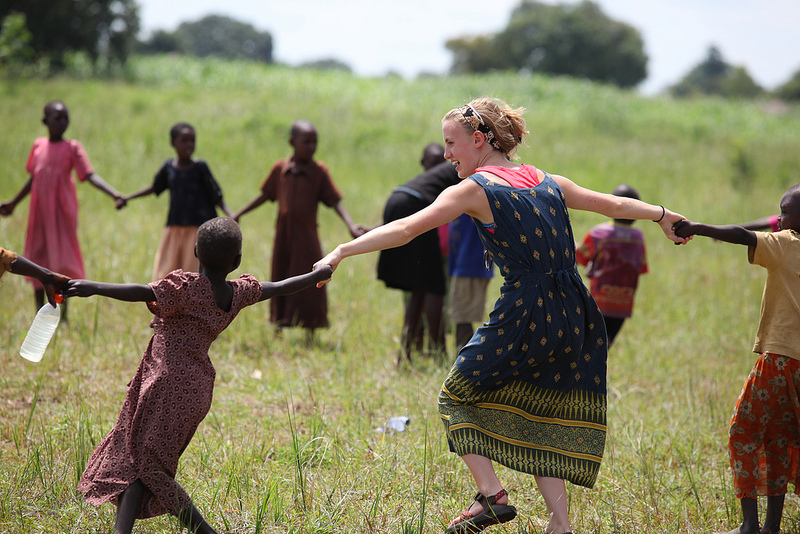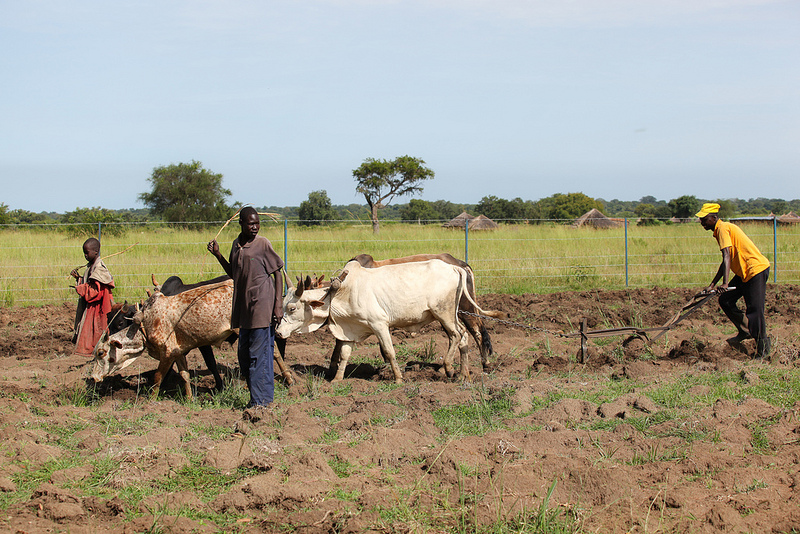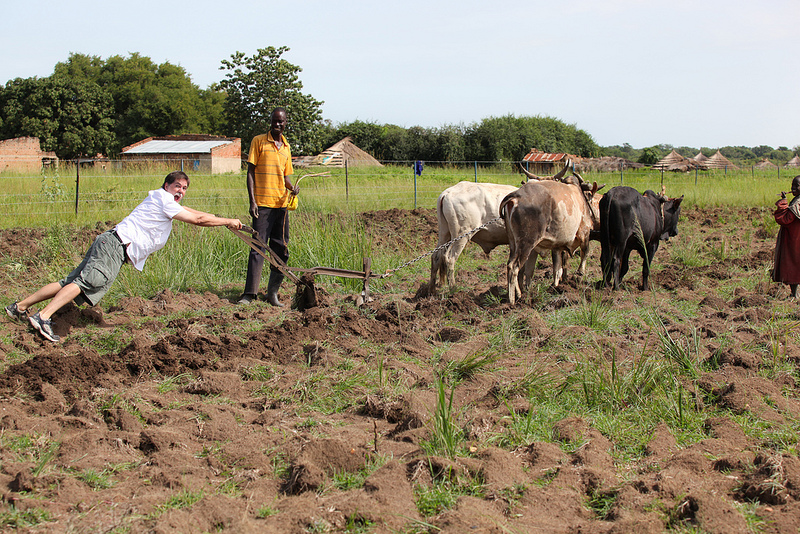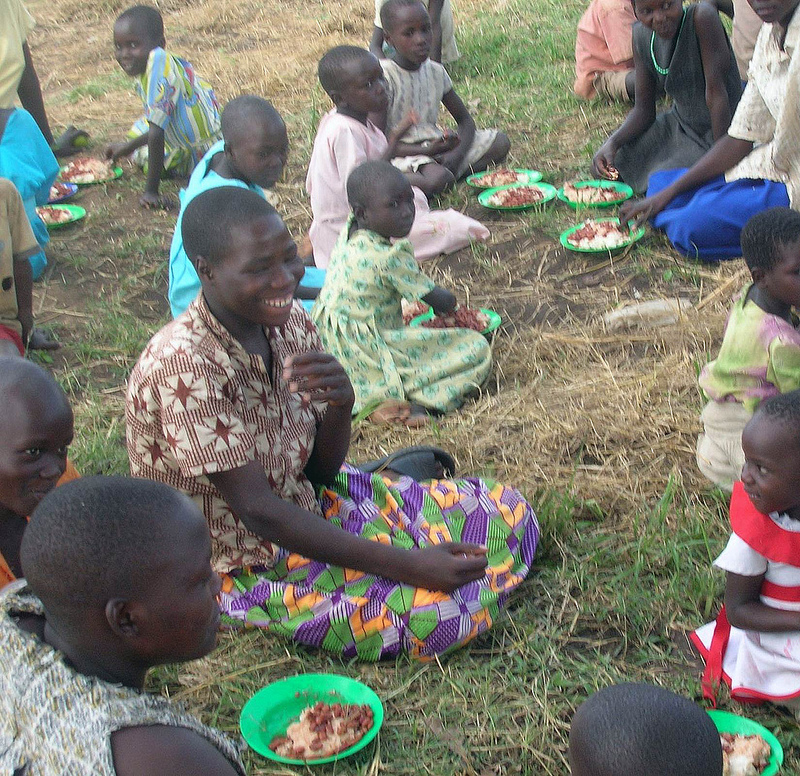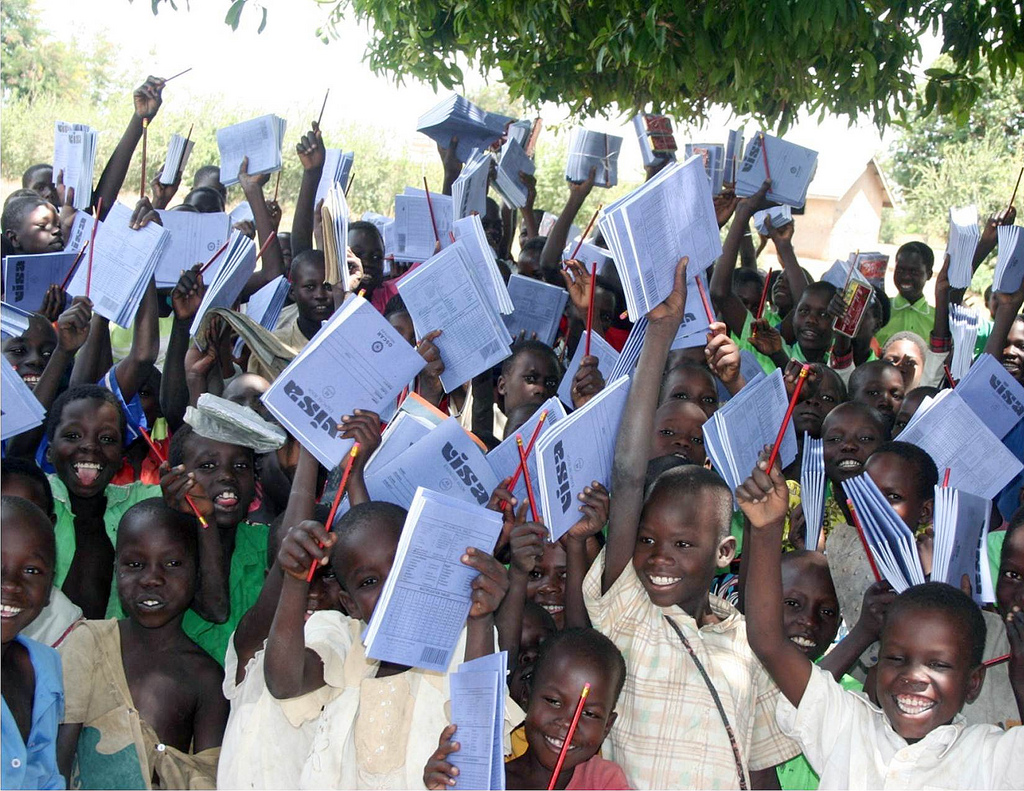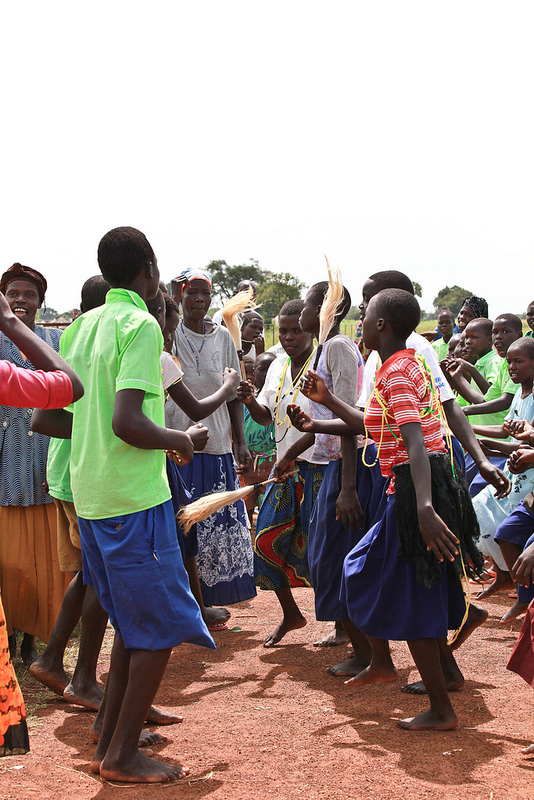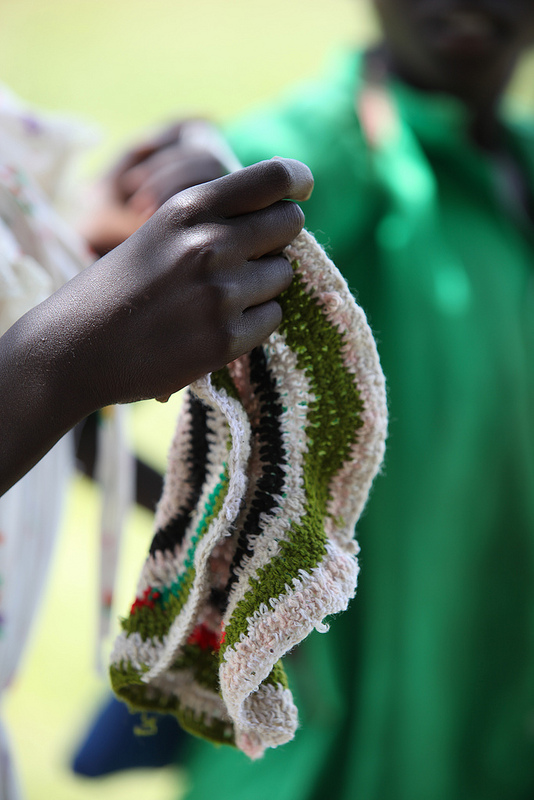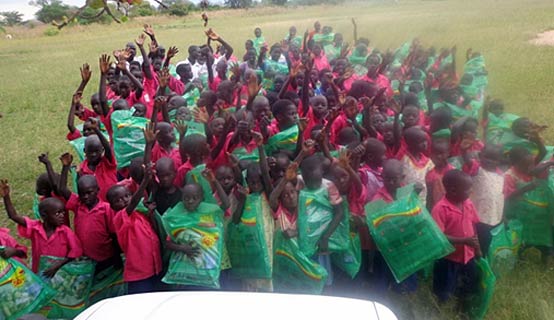We’ve praised the Lord for how far we’ve come. Now let’s turn our thoughts to where we’re going. If our goal is long-term, sustainable ministry, how do we get there?
At the Africa Partners’ Conference, Tom Davis said, “I used to think poverty was so simple, and it’s so complex.” Yup. For realsies. When I first bunny hopped on board with Children’s HopeChest, I was jazzed about feeding kids and finding sponsors. Three and a half years later, I’m still excited about that, but I’ve hippity hopped down the rabbit hole where I’ve learned more about the root of the need and what it takes to forge lasting change.
“This is not a transactional ministry; this is a relationship management ministry…’Relationality’ is the DNA of HopeChest,” said Michael Vinson, a HopeChest staffer. Another staff member, Steve Voyen, talked about “ministering to children in a way that honors who they are. It’s about human dignity; this is about being created in the image of God.” The children of Adacar are beautiful, unique, strong, and passionate. We cannot afford to focus solely on water, food, and buildings, and miss the most important building of all, building relationships with the people we serve.
The people of Adacar have experienced decades of violence and disease which have virtually wiped out everyone except the very young and the very old. Those who have survived have lived in government camps, away from their farms, unable to work and provide for their families. Depending upon charity became their only means of survival, and as the Swazi HopeChest country director said, “Charity will not eradicate poverty. Only education and opportunities will break the cycle of poverty.”
The first time I visited Adacar, in 2010, everyone lived in the camps. The following year, many of the families were beginning to move back to their land, and last year, the majority of the people had moved out of the camps and back into their homes. We were able to visit our sponsored children in their homes and meet their guardians and living family members. We saw new gardens, chickens and goats, groundnuts in abundance. They lavished generous gifts upon us and showed us a level of hospitality that challenged me. Do I provide the same welcome to guests in my own home?
(Yes, I’m holding a chicken. I choose not to think about whether or not I ate said chicken later that week. To our awesome cook, Immaculate: never tell me.)
We watched as they plowed the new CarePoint gardens. Ugandan soil is fertile and grows the best-tasting fruits, vegetables, and grains I’ve ever tasted. Imagine someday food sustainability for Adacar, when the children at the CarePoint are growing the food that they eat, and the pride that they’ll feel.
Um…it’s harder than it looks:
The local government has shared with us that the children’s test scores at school are beginning to rise. With the promise of a meal, the children in the program are attending school, and with full bellies, they are able to concentrate on their studies.
As Elotu Joseph, the HopeChest country director for Uganda said, “We want to see world-changers who can multiply.” We want to help young people find ways to get educated, get equipped, and serve Adacar. Because of the success of the CarePoints across Uganda, enrollment at the schools located near the CarePoints is up 120%, and the government is actually asking HopeChest to expand its program to serve more schools and help children stay at the schools nearest to their homes.
In fact, this year, Adacar has split into two CarePoints. Many sponsors may notice on their profile cards that their children attend Okibui Primary. We now have a CarePoint serving lunch on school days at Okibui, as well as Adacar, and then the children combine at Adacar on Saturdays for discipleship, programming, and the meal.
I love this picture because it was taken by HopeChest Uganda staff while we weren’t there. It’s a peek into an average day at the CarePoint!
Since the beginning of the HopeChest program in 2009, school enrollment has increased from 50% to 85%, across all CarePoints. HopeChest Uganda feeds 2100 children regularly, but they don’t want the CarePoints to just feed mouths. The staff requires that to be in the program, the kids must participate in discipleship. Over the last four years, 542 children have become followers of Jesus Christ, the students have done 37 outreaches into their communities, and they have performed 45 community services.
Many children in the program are beginning to move up from primary school to secondary school, which is amazing and wonderful and exactly what we want. We are looking at a couple of things to help facilitate this growth.
First, can you imagine if the first test you ever took was a national exam? That’s how it is for these students. It would be like taking the S.A.T. as your first test, EVER. And it’s in English, not their native Ateso. In order to help our students prepare for these exams, we want to help them take practice tests. They need a hand-crank (no electricity!) ditto machine to run off copies. To give our kids the best chance at education, we have to help them prepare.
Second, we want to establish a scholarship fund for higher education. Primary education is free, but secondary costs about $600 per year, a price that might as well be a million bajillion to most families in Adacar. Wouldn’t it be wonderful to have a fund for education, where students could compete for scholarship money just like they do here? We’ve established a medical fund, we’ve established a disaster relief fund, and now, we’d like to establish a scholarship fund to support those students who are working hard. These are the young adults who will lead Adacar out of poverty and into a new chapter of success.
All HopeChest students in high school attend a week-long camp each year during their school break where they learn life skills and hear teaching from many different experts to shape their spiritual, vocational, and social development. For those teens who are not in school, who have fallen behind, we are looking at vocational training, helping them to achieve and provide for themselves and contribute to the community. We are looking for job opportunities and micro credit programs for people in the community.
We now have a project officer for Adacar, which is a social worker who works with and for the children. During their discipleship time, the children study the Bible and learn about Jesus. They also learn about health and talk about the dangers of dropping out of school, early marriage, and premarital sex. For girls in the program who do get pregnant, we have established a mentoring program, where a mentor walks with the pregnant teen throughout her pregnancy. Our trip leader this summer is passionate about discipleship and mentoring, and is bringing several girls in her mentoring program with her. The team is looking forward to exchanging ideas with the disciplers in Adacar.
During our trips to Uganda, we have held children who were burning up with fever from malaria, and on the last trip, one of my sponsored children was battling malaria while I visited with her. Joseph said that they used to treat 300 kids a week for malaria, but have given out 1876 mosquito nets over the course of the program, and the number of cases that they see has completely reduced. Here’s a pic of the kids receiving nets after the flood relief campaign this fall:
We also want to build a playground for the children at the CarePoint. This is what they currently have:
We want to build a new playground where the kids can have FUN FUN FUN, as well as level the ground at the CarePoint for a playing field where they can play netball and soccer. Our kids work hard, and we want to help them play hard, too.
The children of Adacar are smart and funny, brave and ambitious. They are the ones to lead Adacar into the future. They have big dreams, and “we want to be implementers of their dream,” as HopeChest staffer Ben Savage said.
Throughout this post, I’ve shared a lot of dreams. And over and over, I’ve used a little word, a tiny, seemingly inconsequential word. “We.” We’re a we. God is moving all of us, inspiring us, providing for us around the world. Joseph and his extraordinary team in Uganda are working to make amazing things happen in the lives of our kids. They have ideas and knowledge and are making it happen. The staff in Colorado is working to partner us with them. And the Adacar sponsors are working to provide funding and encouragement to the kids who need to hear that someone is praying and rooting for them. We’re a we.
And it’s going to take a we to make their dreams a reality. It starts with one, then one, then one, then one, and it becomes a we. Over the last few years, that’s what we’ve been doing. We’ve been becoming a we.
We are ready.
We are here.
We will do this together.
Stay tuned, and I’ll tell you the next step.
